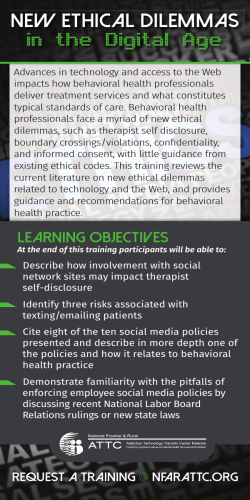
Ideas Bank - St Luke`s Innovative Resources
Ideas Bank INTRODUCING A VISION FOR SUPERVISION Supervision has long been recognised as key tool for professional socialisation and skill development, and as a means of building and maintaining standards for practitioners. Across the broad field of human services today, the content and processes of supervision vary enormously according to people’s different practice settings and expectations about the territory supervision should cover. But whether you’re a social worker in a large organisation or a psychologist in private practice, you’ll know that supervision is a hallmark of good practice! In recent years, several publications have explored supervision across professions and organisational contexts through the lens of solutionfocused approaches. And now, Innovative Resources adds an exciting new tool to the pool: A Vision for Supervision: Strengths-based Questions for Reflective Conversations. This is a truly original resource that captures the best practice elements of postmodern approaches and invites reflection, oneon-one and group supervisory conversations. Perhaps the most distinctive element of A Vision for Supervision is that the questions are designed to have relevance to the supervisor as well as the practitioner. Too often supervision becomes a source of great disappointment and frustration. The relationship can falter and the conversations lose their sparkle and degenerate into instrumentalism. A Vision for Supervision provides an antidote to the corrosives that can reduce supervision to an ordeal or the hum-drum. Try these ideas and get ready to experiment to make your supervision alive and exciting! Pre-supervision Supervisors can use A Vision for Supervision to reflect on their own supervision practice as a way of preparing for a new supervision journey with another person or group. Explore the topics and suits as potential prompts or themes that could be introduced. • Lay the cards out in their respective suits, topics facing upwards, questions downwards. As you look over the array of cards in front of you, consider the context in which you practice supervision. Within Supervision Sessions Use the cards as a tool to assist the supervision process. You could use them at each session or bring them out on an ‘as needs’ basis to help with impasses or difficulties, or to stimulate new directions. Here are some ideas to try: • Together, consider the cards in silence at the beginning of a session to orient your thinking and reflect on priorities. • Which of the cards seem best suited to your circumstances? • Is there a particular card that addresses an issue you have been grappling with? • If the supervision process has become predictable, the supervisor or practitioner may like to pick a card at random (or draw it out of a hat) and begin a conversation. Between Supervision Sessions Reflecting on the questions between supervision meetings can help build the conversational agenda for future sessions. • Display a different card on your desk each day or week as a reflective prompt. • If a reflective journal is kept by either party, use the cards to explore thoughts and feelings and develop an ongoing record of each person’s reflections and professional growth. Perhaps the most distinctive element of A Vision for Supervision is that the questions are designed to have relevance to the supervisor as well as the practitioner. • Which cards represent topics you tend to emphasise or give a lot of time to in supervision? • Which topics don’t seem to come up in your supervision experience? • Can you choose cards with topics you are most or least comfortable raising in supervision? A VISION FOR SUPERVISION 40 laminated cards, 120 x 120mm, polypropylene box, booklet of suggested activities. ISBN: 978 1 920945 70 1 Authors: Roger Lowe & Russell Deal Product Code: 4927 St Luke’s Innovative Resources 62 Collins Street, KANGAROO FLAT Victoria 3555 Australia $64.50 inc. GST Email: [email protected] www.innovativeresources.org
© Copyright 2026








